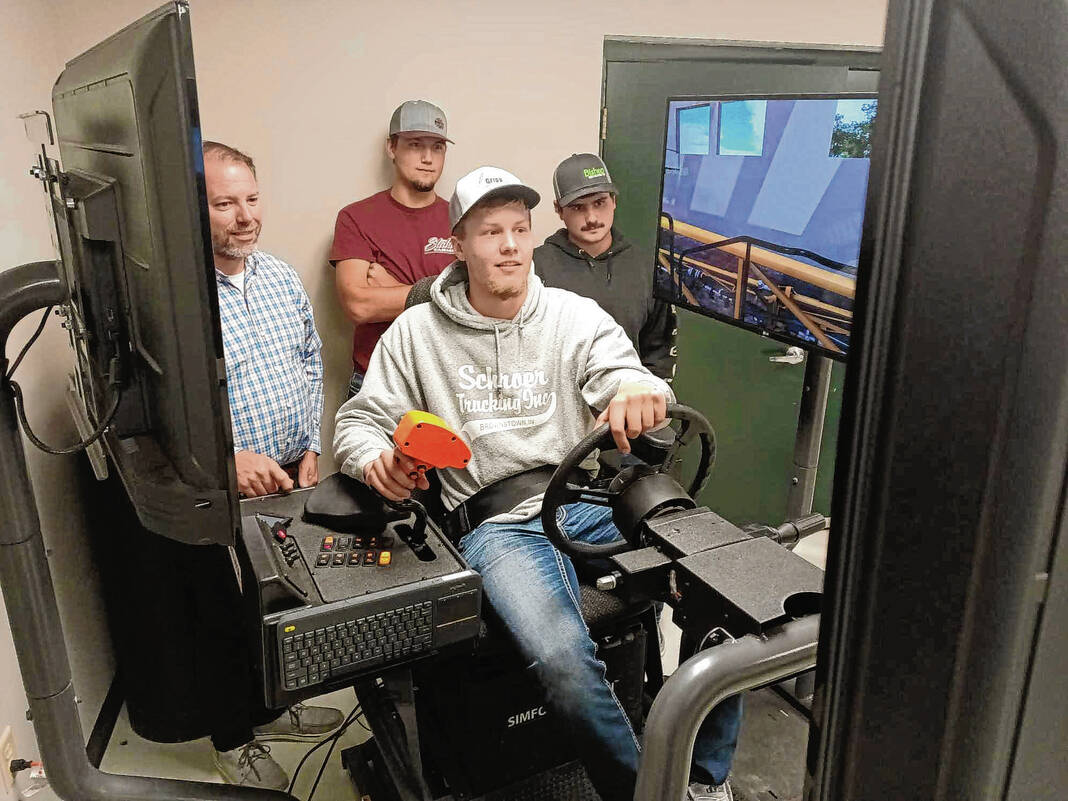
Jackson Hartley tries out the sprayer simulator at Ivy Tech Community College in Columbus as one of the agriculture professors, David Harrell, far left, and fellow students Levi Stahl and Cayleb Covert look on. All three students are graduates of Brownstown Central High School and are involved in Ivy Tech’s new sprayer certification program and are working toward Associate of Applied Science degrees in agriculture.
Zach Spicer | The Tribune
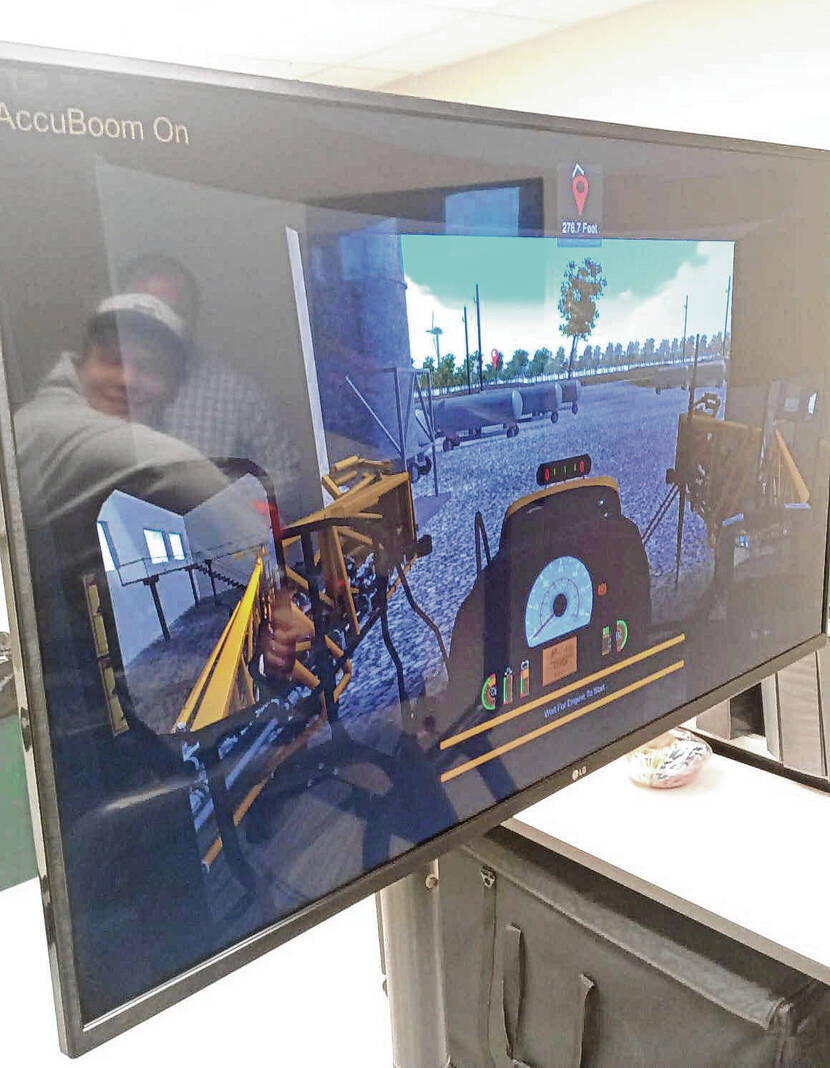
Jackson Hartley tries out the sprayer simulator at Ivy Tech Community College in Columbus for the first time in the fall of 2023.
Zach Spicer | The Tribune
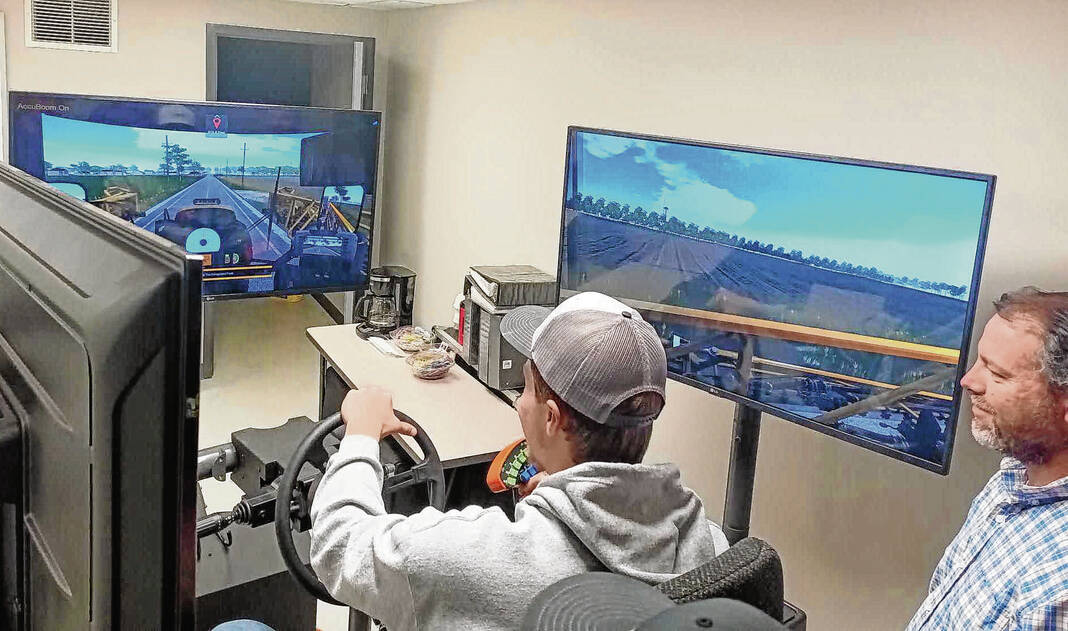
Jackson Hartley gets behind the wheel of a new sprayer simulator at Ivy Tech Community College in Columbus as one of the agriculture professors, David Harrell, watches.
Zach Spicer | The Tribune
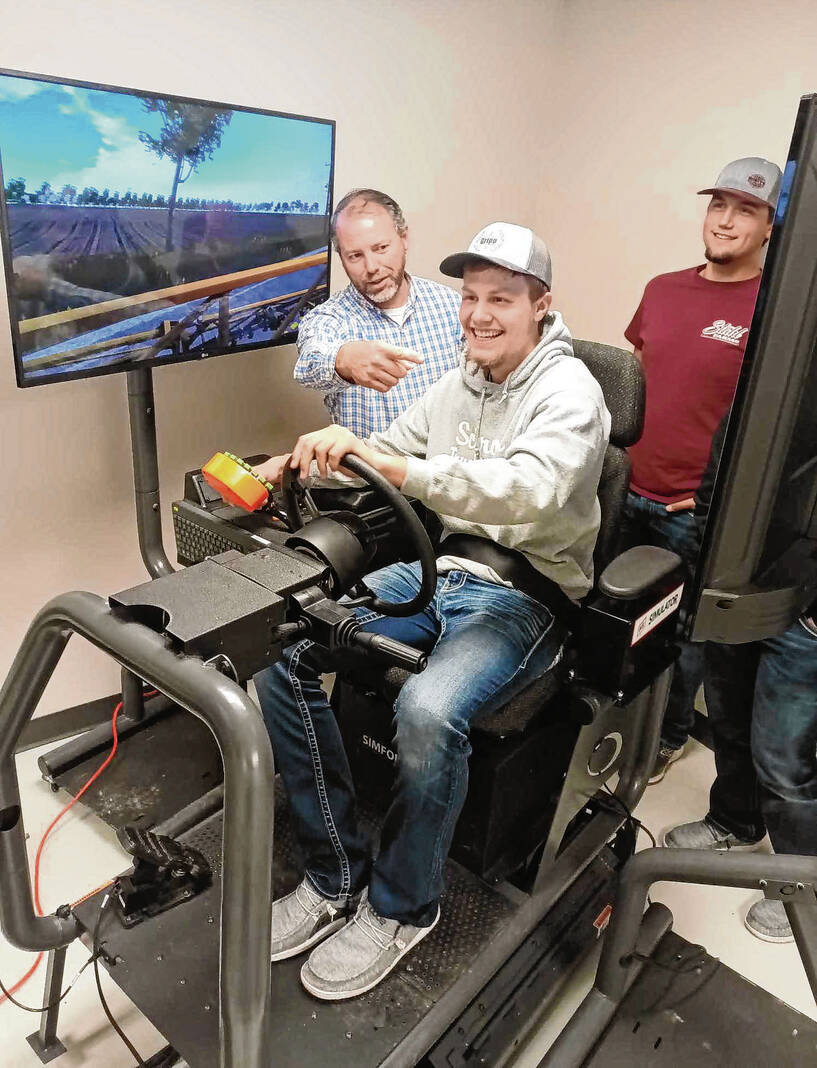
David Harrell, left, an agriculture professor at Ivy Tech Community College in Columbus, gives Jackson Hartley tips as he tries out the new sprayer simulator. At right looking on is fellow student Levi Stahl.
Zach Spicer | The Tribune

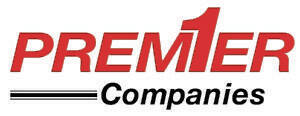

In agriculture, spray system operators are in high demand.
Hoosiers starting out in these positions earn on average $20.50 an hour.
Ivy Tech Community College and Premier Companies teamed up to develop classroom and hands-on lessons to quickly produce talent to fill these critical roles, according to an Indiana Department of Workforce Development video posted on YouTube.
Matthew John, agriculture program chair and department chair for agriculture and precision agriculture for the Ivy Tech Columbus campus, said precision ag started on campus about a year ago, and he began looking for equipment. A sprayer simulator came up.
“We purchased it because we knew there was a local need for sprayers with all different ag companies,” John said in the video.
Ryan Priest, COO of Seymour-based Premier Companies, said he heard about Ivy Tech obtaining the simulator to give an overview of how to run one of the machines the company uses, and he contacted John and fellow ag professor David Harrell to work on building curriculum around that machine.
The result? A 16-week sprayer certification course was established through Ivy Tech with training certified by IDWD, putting students on a path to a career in the high-tech industry of agriculture.
According to the video, ag contributes more than $31 billion to Indiana’s economy annually.
“There is a huge demand for applicators, for driving sprayers for the co-ops, the farmers, for different ag companies. It’s tough right now all around trying to recruit anybody for this kind of work,” Harrell said, noting the sprayers are 90 to 120 feet wide and cost around $600,000.
“In Indiana, to spray commercially for hire, you have to have certifications,” he said. “You have to pass a core pesticide exam. Purdue (University) administers it through the Office of Indiana State Chemist. Everyone at the farm level that sprays has to pass the core. If you start spraying for hire, custom applicators, then you have to pass the Category 1, which is a harder test.”
Instead of putting a person in an expensive machine and sending them out on the road, Harrell said the simulator goes through all of the phases, from plant to field. There are eight modules, the last one taking more than an hour.
“The biggest thing is we’re getting them real seat time without the risk of damage,” he said. “This gives them some real training before you put them in a machine.”
For eight weeks from October to December 2023, students took two courses, plant pest ID and control and soil fertility. The first involved identification and control of weeds, insects and diseases, and the second involved use of fertilizers for peak production of optimum cost.
For eight weeks now through March, they are taking application control and precision applicator operations. The first is an in-depth survey of the electrical, mechanical, hydraulic and pneumatic control of fertilizer, pesticide and seed application using variable rate technology along with use of precision harvesting systems to monitor and record yield data, while the second involves use of the simulator and then moves to practice on actual application equipment.
The program also includes three sprayer certification exams. Once passing those and completing the course, a student can be fully certified and working full time as a sprayer operator this spring, according to an article in Hoosier Ag Today.
“We designed it so it would start that second eight weeks, about the time that a lot of the companies are slowing down with spraying,” John said in the story. “So if they have employees who need to be certified and get to pass the exams, that would work out in their slower season, and they would be ready to go about the middle of March when our eight weeks of classes end in the spring.”
The classes are one day a week and are electives for the ag program. Some students are working toward an Associate of Applied Science in agriculture, where they will be done in two years and be ready to go to work, while others are earning an associate degree in agriculture to continue their education for a higher degree.
“It’s no secret that we have a decline in the number of high school graduates that want to attend a college,” John told Hoosier Ag Today. “So this short-term training program fits the need for a lot of those students who need something beyond high school that gets them right in the career field in a pretty short period of time.”
The program also received certification through the state and is part of Indiana’s Next Level Jobs program.
“The Indiana Department of Workforce Development was really interested in working with some agricultural institutions, and so we started looking at making this a state ‘earn and learn,’” John told Hoosier Ag Today. “So we brought in Premier Companies as an industry partner, and then put together the training program that includes the four classes and then the three certification exams.”
2022 Brownstown Central High School graduates Levi Stahl and Cayleb Covert and 2023 BCHS graduate Jackson Hartley are among the students enrolled in the program. They are all on track to earn an Associate of Applied Science in agriculture.
Hartley said he found out about the program from his boss, Victor Hackman, who had gone to Ivy Tech Columbus, while Stahl said he took the program because it’s only two years and he is able to commute back and forth to classes and also work.
“We’re only here one day a week, and we can still be at the farm and do whatever,” Hartley said.
This past fall, Hartley had an opportunity to try the simulator for the first time. That was before he will do that in one of the classes during the second eight weeks.
“It’s similar (to a real sprayer) but different using this. I’m used to John Deere,” he said. “It’s obviously not what I’m used to. It shakes you around like (a real one) does, and when it hits something, it bumps. It’s a lot more realistic than I figured it would be.”
He said a sprayer is one of the most difficult things on the farm to drive down the road.
“It’s so top-heavy, and every little move of the steering wheel makes it go everywhere,” he said. “It’s really nice to be able to practice a little bit not in real life to see how it’s going to react and stuff.”
Covert said the simulator is beneficial to students.
“I think it’s just good practice for those who maybe have not had much experience with (sprayers), so if they are wanting to go off and do it, they can start off here,” he said.
Stahl said the ultimate goal of the program is to get the certification.
“It gets you your core because now, you have to have a license to spray or whatever,” he said.
Hartley said the upcoming growing season is the first time anyone who runs a sprayer has to be licensed to run it.
“Used to, you could just go off of your boss’ license or whoever as long as someone was watching you, but now, you have to have it yourself,” he said. “This is really nice to go ahead and get this over with. We all run the sprayers and everything there. I’d like to farm is my dream.”
Harrell said the Columbus campus is piloting the sprayer certification program, and the hope is to expand it to other Ivy Tech campuses, including Lafayette and Terre Haute.
Information in this story from Hoosier Ag Today is part of a story written by C.J. Miller, assistant news director for the publication. That story originally appeared at hoosieragtoday.com.
Learn more
For information about the Sprayer Certification Program at Ivy Tech Community College in Columbus, contact Matthew John at [email protected] or 812-374-5174.
